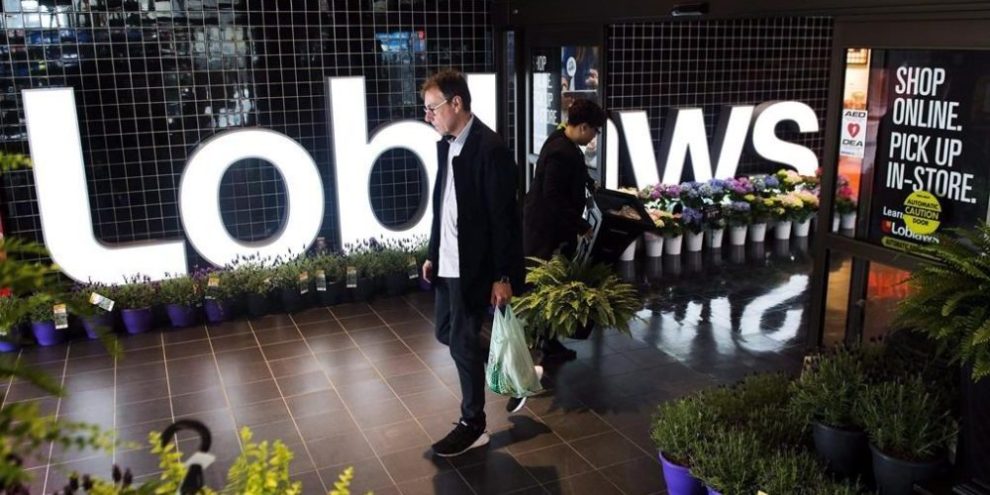
Large global suppliers are driving costs higher for Loblaw Companies Ltd., the firm said as it released earnings for the second quarter that showed profits up despite lower gross margins.
"We have received double−digit increases from the same suppliers who gave us double−digit increases last year. That’s why you see products that are noticeably more expensive than they were just a couple of years ago," said CFO Richard Dufresne on a conference call with analysts.
"While cost increases are coming in from all tiers of our supplier base, the largest global brands stand out."
One of the company’s largest vendors submitted price increases totalling 50 per cent, or a quarter−billion dollars, said Dufresne. He added that prices for meat, fruit and vegetables rose in the mid−single−digits while centre−of−store prices were up in the double−digits.
"The math is very simple: Cost increases from big brands were well above Canada’s food inflation, and our food margin declined," said Dufresne. "Suggestions of grocer profiteering just don’t add up."
Canada’s grocery giants, the largest of them being Loblaw, have been under increased scrutiny amid breakneck inflation that’s especially hit food prices. While overall inflation has been moderating, most recently to 2.8 per cent in June, grocery prices have continued to grow, up 9.1 per cent last month.
Politicians have called for the grocery industry to be more transparent about what has been driving profits, which have outperformed amid a broader rise in corporate profits.
Last month, the Competition Bureau released a study saying Canada’s grocery industry needs more competition to keep food prices down.
The largest grocers have increased the amount they make on food sales in recent years, the bureau said, with the three biggest grocers collectively reporting around $3.6 billion in profits last year. Food gross margins increased by a "modest yet meaningful" amount of one to two percentage points over the last five years, the study found.
On Wednesday, Loblaw reported a profit available to common shareholders of $508 million for its second quarter ended June 17, an increase of 31.3 per cent from the same period last year.
Net earnings were "unusually elevated" because of a prior−year charge at President’s Choice Bank, Loblaw said in a press release, noting that adjusted net earnings were up 10.6 per cent.
The parent company of Loblaws and Shoppers Drug Mart reported its profit amounted to $1.58 per diluted share for the quarter ended June 17, an increase from $1.16 per diluted share in the same quarter last year.
Revenue for the 12−week period totalled $13.7 billion, up from $12.8 billion a year earlier.
Food retail same-store sales were up 6.1 per cent, while drug retail same−store sales increased by 5.7 per cent.
Food retail sales growth was driven by a continued consumer shift to discount stores and interest in private−label brands, the company said.
Hard discount banners continued to outperform the overall discount channel, said Dufresne, adding that the company’s discount position in Quebec grew in the second quarter with 10 Provigo stores converted to the Maxi banner, and another 10 conversions planned in the third quarter.
However, it added that retail gross margin declined slightly in both the food and drug categories, saying it faced double−digit supplier cost increases that were not fully passed on to consumers.
Loblaw’s teams are reaching out to suppliers and pressing for cost decreases, said Dufresne.
The negotiations between grocers and suppliers, normally out of the limelight, have been in sharper focus amid high food inflation. Last spring, the absence of Frito−Lay products in Loblaw−owned stores made a pricing dispute public as the two companies faced off before eventually resolving the matter and returning Cheetos, Doritos and more to shelves across the country.
Last quarter, Loblaw also pointed fingers at big multinational food brands, saying product costs had risen by double the historic norm. However, at the time one of Canada’s biggest food supplier industry groups told The Canadian Press that suppliers are facing their own pressures in the form of rising manufacturing costs.
Major food brands including Coca−Cola, PepsiCo, Kraft Heinz and General Mills have reported raising prices in recent earnings releases.
On an adjusted basis, Loblaw earned $1.94 per diluted share in its latest quarter, up from an adjusted profit of $1.69 per diluted share a year ago.
E−commerce sales for the company were up 13.9 per cent.
Loblaw expects its retail business to grow earnings faster than sales for the full fiscal year, the company said.
It plans to increase investments in the store network and distribution centres by investing a net amount of $1.6 billion in capital expenditures.
banner image: The Canadian Press





